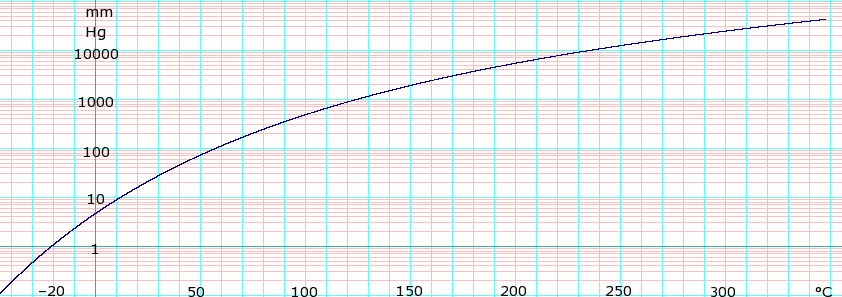Pyridine (data page)
This page provides supplementary chemical data on pyridine.
Material Safety Data Sheet
The handling of this chemical may incur notable safety precautions. It is highly recommend that you seek the Material Safety Datasheet (MSDS) for this chemical from a reliable source such as MSDS Search Engine, and follow its directions. MSDS is available from Sigma - Aldrich.
Structure and properties
| Structure and properties | |
|---|---|
| Index of refraction, nD | 1.509 at 20 °C |
| Abbe number | ? |
| Dielectric constant, εr | 12.3 ε0 at 25 °C |
| Bond strength | ? |
| Bond length | ? |
| Bond angle | ? |
| Magnetic susceptibility | ? |
| Surface tension[1] | 40.8 dyn/cm at 0 °C 38.0 dyn/cm at 20 °C 26.4 dyn/cm at 100 °C |
| Viscosity[2] | 0.974 mPa·s at 20 °C |
Thermodynamic properties
| Phase behavior | |
|---|---|
| Triple point | 231.48 K (–41.67 °C), ? Pa |
| Critical point | 619 K (346 °C), 5660 Pa |
| Std enthalpy change of fusion, ΔfusH |
8.28 kJ/mol |
| Std entropy change of fusion, ΔfusS |
35.8 J/(mol·K) |
| Std enthalpy change of vaporization, ΔvapH |
40.2 kJ/mol |
| Std entropy change of vaporization, ΔvapS |
? J/(mol·K) |
| Solid properties | |
| Std enthalpy change of formation, ΔfH |
? kJ/mol |
| Standard molar entropy, S |
? J/(mol K) |
| Heat capacity, cp | ? J/(mol K) |
| Liquid properties | |
| Std enthalpy change of formation, ΔfH |
100 kJ/mol |
| Standard molar entropy, S |
177 J/(mol K) |
| Enthalpy of combustion, ΔcH |
–2782 kJ/mol |
| Heat capacity, cp | 132.72 J/(mol K) |
| Gas properties | |
| Std enthalpy change of formation, ΔfH |
140 kJ/mol at 25 °C |
| Standard molar entropy, S |
? J/(mol K) at 25 °C |
| Heat capacity, cp[3] | 157.8 J/(mol K) at 25 °C |
Vapor pressure of liquid
| P in mm Hg | 1 | 10 | 40 | 100 | 400 | 760 | |
| T in °C | –18.9 | 13.2 | 38.0 | 57.8 | 95.6 | 115.4 | |
Table data obtained from CRC Handbook of Chemistry and Physics 44th ed.

Spectral data
| UV-Vis | |
|---|---|
| λmax | ? nm |
| Extinction coefficient, ε | ? |
| IR | |
| Major absorption bands | ? cm−1 |
| NMR | |
| Proton NMR | |
| Carbon-13 NMR | |
| Other NMR data | |
| MS | |
| Masses of main fragments |
|
gollark: My phone supports it and osmarks.tk supports it.
gollark: Well, osmarks.tk supports it.
gollark: Besides, this lets me assign unique addresses to all the atoms in my body.
gollark: Yes, but you can still write them down, and at least we won't run out for a while.
gollark: IPv6 allows 340282366920938463463374607431768211456 addresses.
References
- Lange's Handbook of Chemistry, 10th ed. pp 1661-1663
- CRC Handbook of Chemistry and Physics, 44th ed. pp 2258-2263
- "Pure Component Properties" (Queriable database). Chemical Engineering Research Information Center. Retrieved 20 May 2007.
- "NIST Standard Reference Database". Retrieved 20 May 2007.
Except where noted otherwise, data relate to standard ambient temperature and pressure.
Disclaimer applies.
This article is issued from Wikipedia. The text is licensed under Creative Commons - Attribution - Sharealike. Additional terms may apply for the media files.